Are you a cat person or a dog person? Personally, I have always loved both and see the advantages of each pet. I’m a definite dog lover, but cats have them beat in some aspects!
Cats are more hygienic, require less physical exertion from you to stay healthy, and tend to be cheaper than dogs. They live longer than most dog breeds, can live in smaller spaces, and are quieter.
In this article, we’ll discuss 23 reasons cats are better than dogs from a dog lover’s perspective. We’ll also talk about common cat myths that you should know before adopting.
#1: They Don’t Need Baths
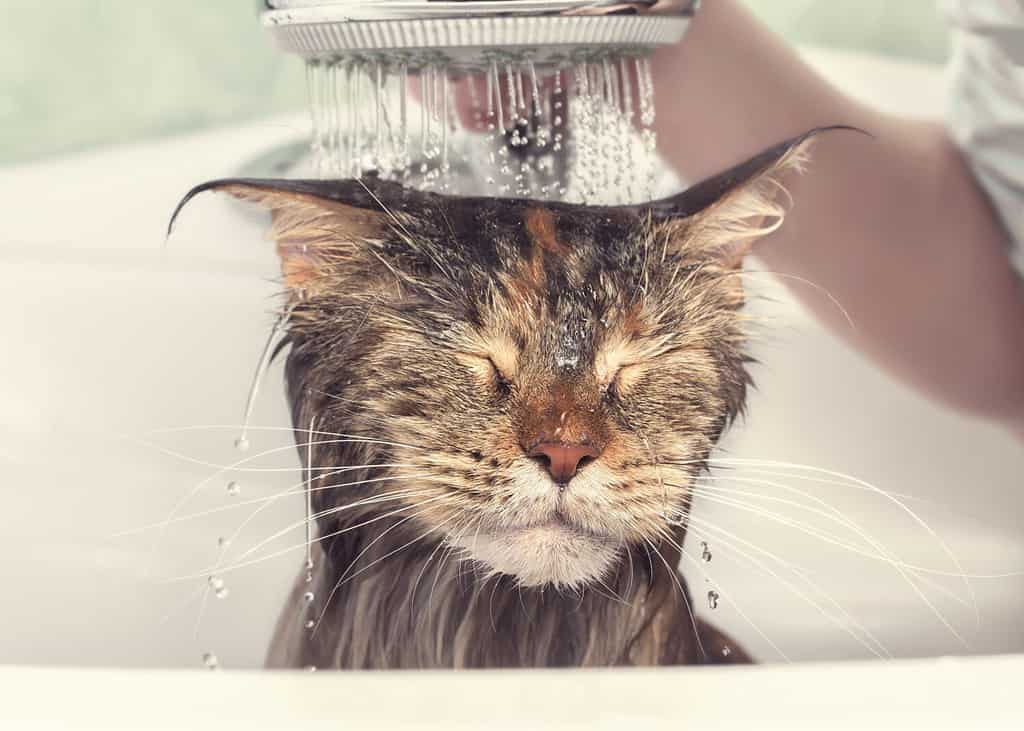
Most cats will never need a bath in their lives because they keep themselves clean.
©Olleg Visual Content/Shutterstock.com
Cats never need baths outside of medical reasons, such as if they develop fleas or have a bad case of diarrhea. It’s actually very ill-advised to bathe your cat, as it’s stressful for them, and they clean themselves.
Dogs, on the other hand, should be bathed at least once every three months. Some breeds need baths as often as every couple of weeks!
#2: They Don’t Smell Like Dog

Wet dogs have a distinct odor that you’ll never have to worry about with your cat.
©Alex Zotov/Shutterstock.com
You know the smell I’m talking about! I’ve actually never minded the smell of dogs, but they definitely have a distinct odor, even when clean.
That’s not to mention the smell of a wet dog!
#3: You Don’t Need to Walk Them (But You Can!)
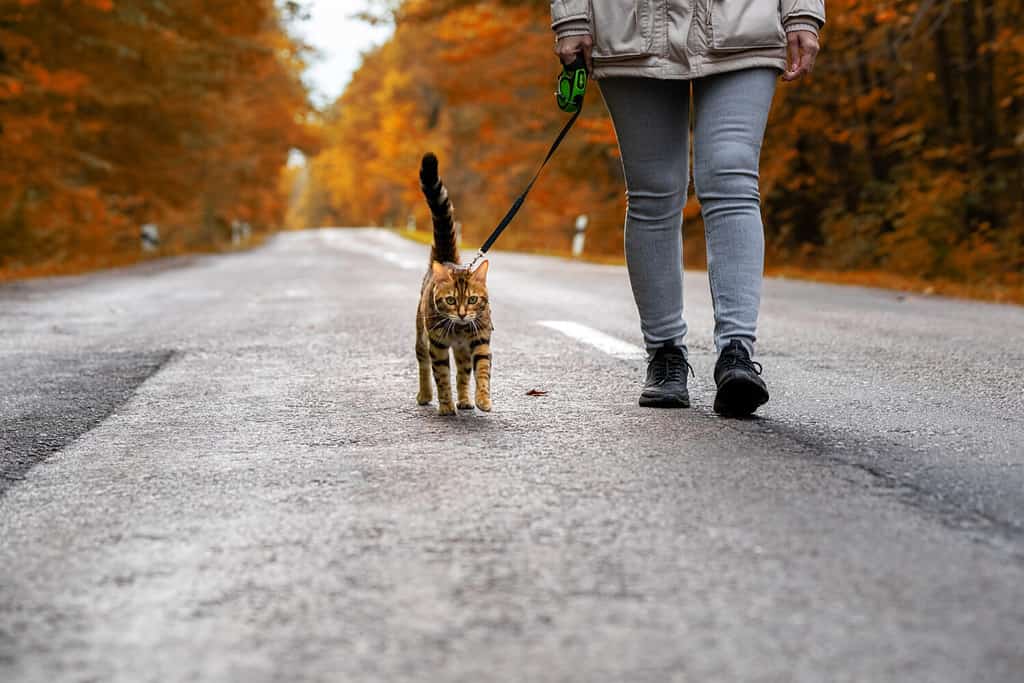
Dogs need daily walks, but this isn’t a requirement for cats.
©Amerigo_images/Shutterstock.com
Cats don’t need to be taken outdoors for walks. They potty in litterboxes and can live fantastic lives indoors with daily play as their exercise.
But you can harness-train a cat if you want to. It takes time and patience, but it’s very similar to training a stubborn dog.
#4: They Do Best When Kept Indoors

Cats don’t need large backyards and do best when kept strictly indoors.
©iStock.com/Svetlana Popova
If you’re fond of the great indoors, like me, you’ll appreciate that your cat doesn’t need to go outside to potty or exercise. They actually do best when kept indoors full-time. Like dogs, your cat should never be outside unsupervised.
Again, though, this isn’t a must. If you want someone to sit in the sun with you or even go on hikes, your cat can be trained to walk on a harness or stay by your side in the yard. You can even build a catio (cat patio) to let them safely venture outdoors on their own.
Some people do let their cats wander freely outdoors, but this is very risky, and outdoor cats often face shortened lifespans. It’s also harmful to native wildlife.
#5: They’re Better at Finding Their Way Home
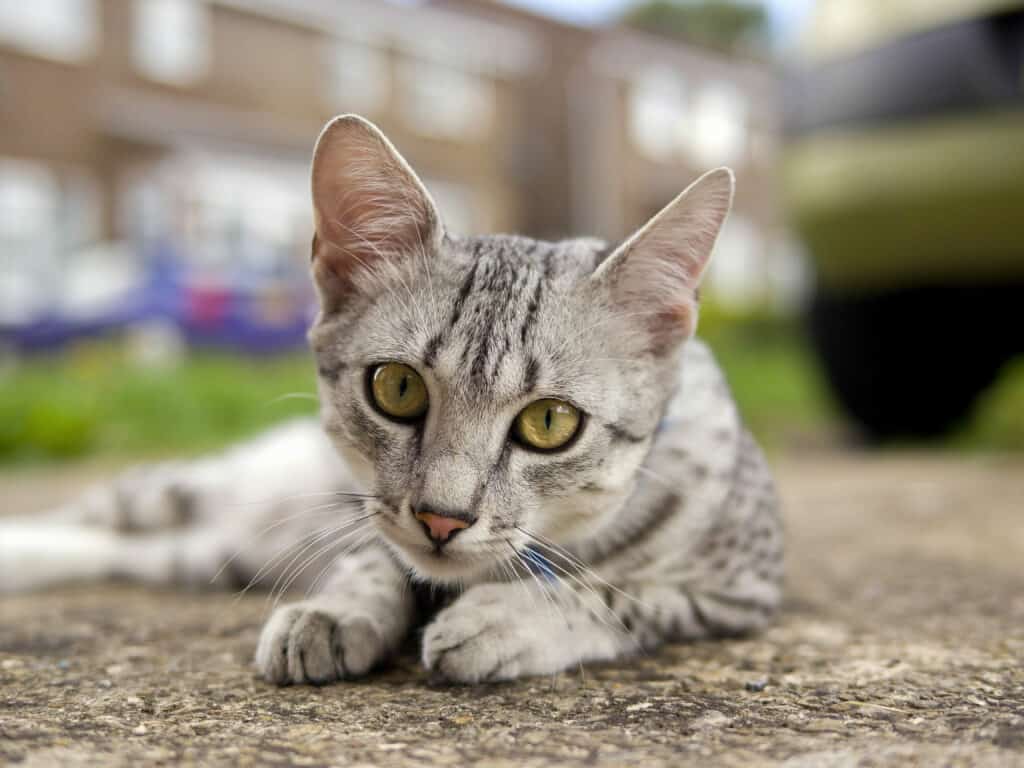
Cats have a great sense of direction.
©iStock.com/Tbowerman
If your kitty does get outside by mistake, they’re typically better at finding their way back than a dog. That said, you should address the problem right away once your cat returns home.
This might mean using boundaries like baby gates so they can’t dash out the door or getting them spayed or neutered so that they don’t have the urge to roam.
#6: They Use Litter Boxes
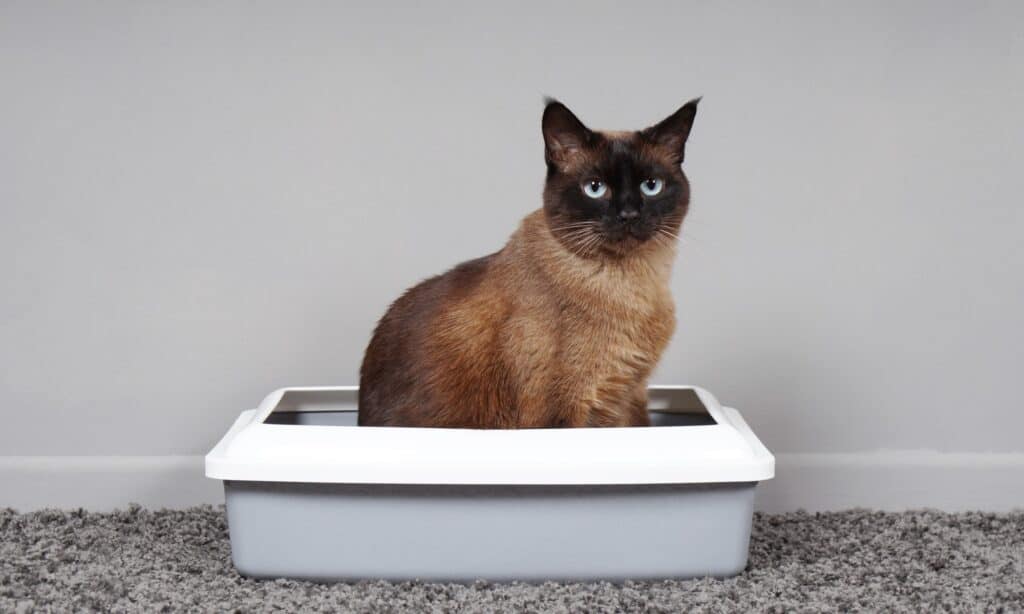
Taking your dog outside to potty can be a pain, but cats just use the litter box!
©iStock.com/Axel Bueckert
Hear me out: I know dog people tend to see the litter box as a negative, but it’s actually beneficial!
Have you ever woken up in the middle of the night to your dog crying to go outside or dreaded putting on your snow boots to walk them out in the cold?
I usually love walking my dog, but sometimes it’s downright inconvenient. My cats simply do their business in the litter box, and I get to scoop it at the time of day that works best for me!
#7: Their Poops are Smaller

Cat poop is smaller and more convenient to clean.
©iStock.com/Vitalii Puzankov
Cat poop is also easier to clean because it’s smaller than most dogs’ poop. A litter scooper is also easier to use, in my opinion than a dog poop scooper or plastic bag.
Because the litter covers the poop, it also tends to be less stinky.
#8: Potty Training is (Usually) a Breeze
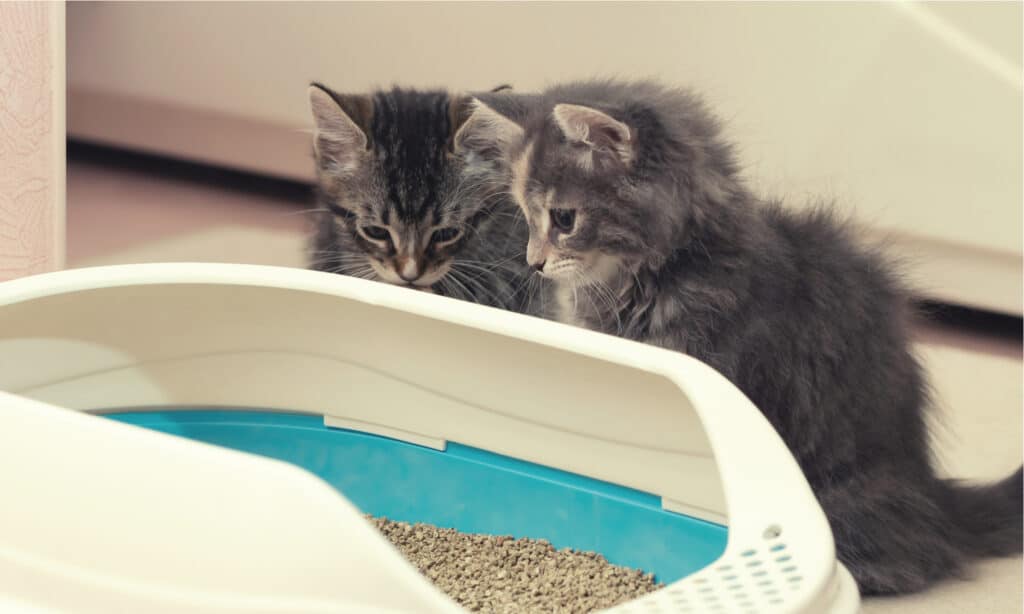
Using a litterbox is natural for cats, and they typically don’t need training.
©galsand/Shutterstock.com
Kittens can learn to use the litterbox as young as three weeks old. It’s natural for them to bury their waste, so true potty training isn’t usually required.
Some cats do struggle with the concept, usually if they’ve had poor experiences due to illness or were neutered later in life. This is typically solved by re-potty training them in a small, easy-to-clean space, such as a bathroom.
Puppies take much longer to learn and typically have more accidents in the house than kittens.
#9: They Require Less Training in General

Dogs require more training than cats.
©Melounix/Shutterstock.com
In my opinion, a fatal mistake people make with their cats is assuming they don’t need training. Socialization, handling, and manners are all important things to work on with your cat.
They can also learn much more if you choose to teach them, such as leash walking or even your standard “dog” tricks like sit, shake, and stay.
But typically, your cat isn’t going out in public nearly as much as your dog. So, they don’t need nearly as much training in order to succeed in life.
#10: Cats Don’t Bark

Dogs are much louder than cats.
©alexei_tm/Shutterstock.com
You’re almost never going to hear your neighbors complain that your cat makes too much noise (as long as you keep them indoors, that is). While some dogs bark at the smallest of things, this isn’t something you’ll need to train out of your cat.
You shouldn’t adopt one thinking they’ll be silent–some cats are quite chatty–but even their loudest meows don’t compare to a barking dog.
#11: Their Purrs Can Literally Heal Injuries
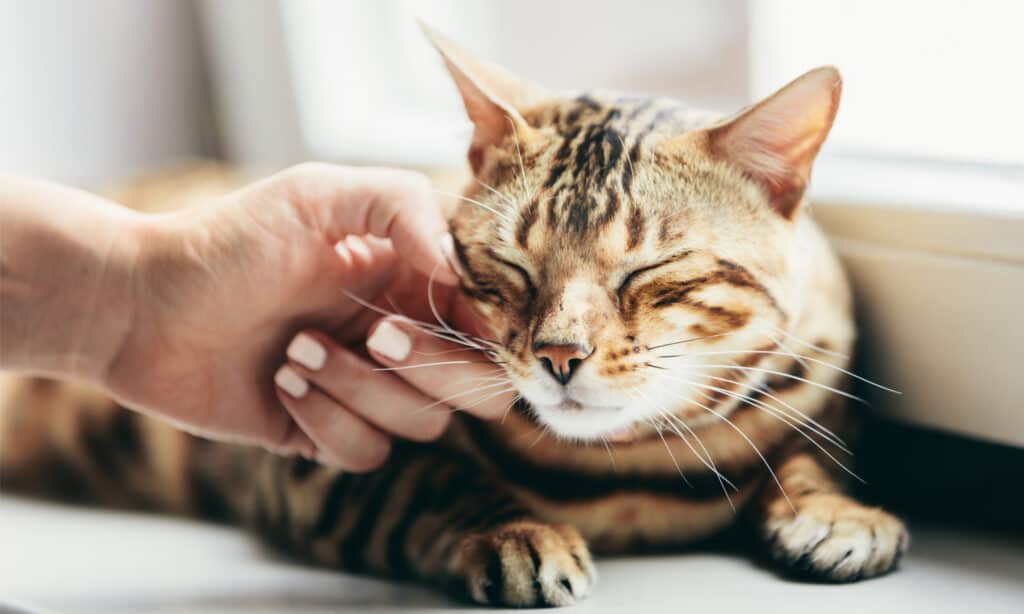
Cat purrs have healing qualities.
©iStock.com/NiseriN
Did you know that a cat purring doesn’t always indicate happiness? Cats also purr when they’re afraid or injured.
Cats’ purrs have soothing qualities for both cats and humans. On top of this, they actually operate at frequencies that can heal bones and other injuries.
They’re also incredibly intuitive animals, similar to dogs. If you’re injured or sick, your cat might stay nearer and is likely to purr more in an attempt to provide comfort.
#12: They Tend to be Cheaper than Dogs

Cats generally cost less than dogs, especially larger breeds.
©Casey Elise Christopher/Shutterstock.com
Cats aren’t inexpensive pets, but they do tend to be cheaper than dogs. This is especially true if you have a large dog since they’ll need a lot more food, have higher vet bills, plus need larger and more expensive items.
Cat toys are cheap, and they’re often happy to play with free items, like bottle caps or crumpled pieces of paper. Often, dogs need tough, durable toys that will hold up to chewing.
You will have to buy litter for your cat, which is a recurring cost, but you don’t need collars, harnesses, leashes, or poop bags.
#13: Cats Often Adopt You
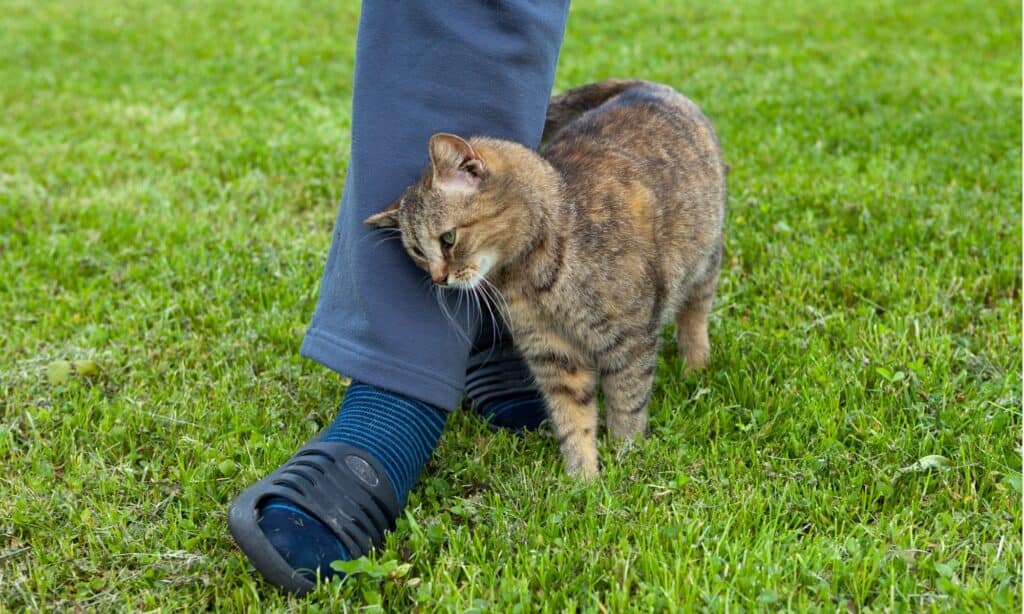
It’s not hard to adopt a cat since there’s an overpopulation in most areas.
©iStock.com/gsermek
Currently, I have seven cats, and I’ve never adopted a cat from a shelter, rescue, or breeder. I just found them outside, which is actually the most common way that cats are adopted. I even found a pregnant mama cat and got a six-for-one deal!
You don’t have to search far and wide to adopt a cat. Unfortunately, there’s an overpopulation of them–especially during kitten season, when many shelters will literally give them away for free.
#14: Breed is Rarely Important
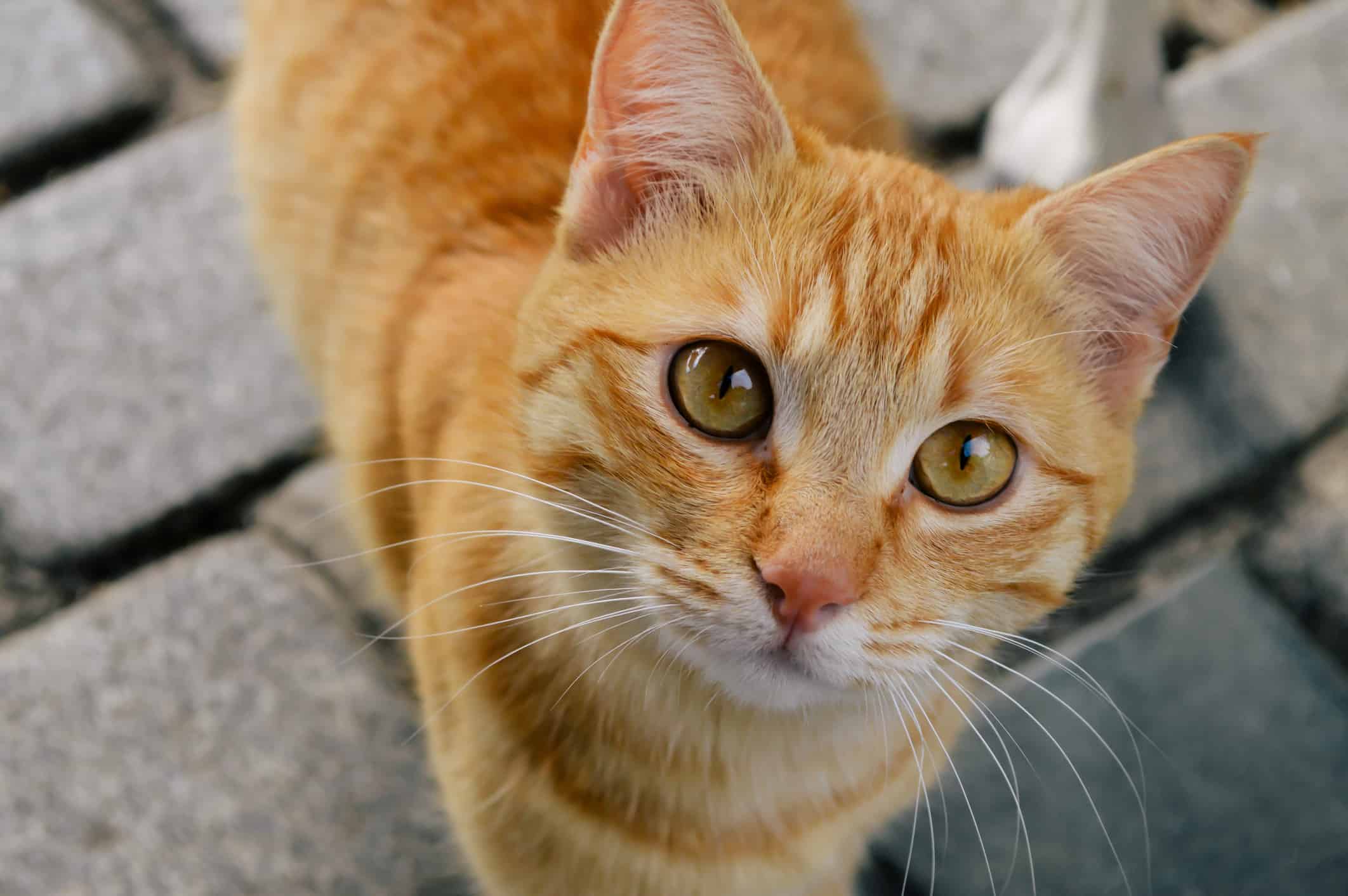
Most cats are “mutts” or mixed breeds, and their breed makes little difference in the care they require.
©iStock.com/Pijarn Jangsawang
When adopting a dog, whether they’re a rescue or from a breeder, it’s vital to research their breed. It impacts their needs, from how much exercise they’ll require to their behaviors and instincts.
Cats are fairly uniform, especially when adopting mixed-breed rescues. They need 30-45 minutes of daily play, have strong prey drives, and vary in personality even within the same breed.
Of course, there are cat breeds with specific needs, such as Spynx cats and their sensitive skin or Bengals and their high need for exercise.
#15: Kittens are Easier to Care for than Puppies

Kittens require less time and training than puppies.
©Nynke van Holten/Shutterstock.com
Kittens are a lot of work but, for most people, puppies are on another level. Puppies require potty training, which means going outside every couple of hours. They typically need much more socialization because they’ll be experiencing more of the world than a housecat.
Many people utilize forced nap time with puppies to ensure they get enough sleep, but kittens tend to handle this on their own.
Especially if you adopt two kittens (which is strongly recommended), they’re almost always going to be easier and less time-consuming to raise.
#16: Indoor Cats are More Eco-Friendly than Most Dogs

Indoor cats aren’t as bad for the environment as dogs.
©Yarkovoy/Shutterstock.com
Cats eat less than dogs, so they leave a smaller carbon footprint. Meat, which is the primary source of food for both species, isn’t great for the planet. Neither is the manufacturing or shipping process for pet food!
However, the benefits of cats go out the window if you allow your cat outdoors unsupervised and unenclosed. Cats are invasive species and have caused the extinction of native wildlife. They’re estimated to kill 1.3–4.0 billion birds and 6.3–22.3 billion mammals every year.
#17: Cats Often Live Longer than Dogs

Dogs typically have shorter lifespans than cats.
©Katniss studio/Shutterstock.com
Cat and dog lifespans vary considerably. Giant dog breeds often don’t make it into the double digits, while tiny dogs can sometimes live into their twenties. Cats live similar lifespans to small dogs and can live much longer than medium to large breeds.
Of course, there are several variables. Outdoor cats don’t live nearly as long as those kept safely indoors, just like dogs usually have shortened lifespans if they’re allowed to roam freely.
Genetics, diet, exercise, and vet care all play a role as well, with proper care extending the lives of both pets.
#18: They do Well in Apartments
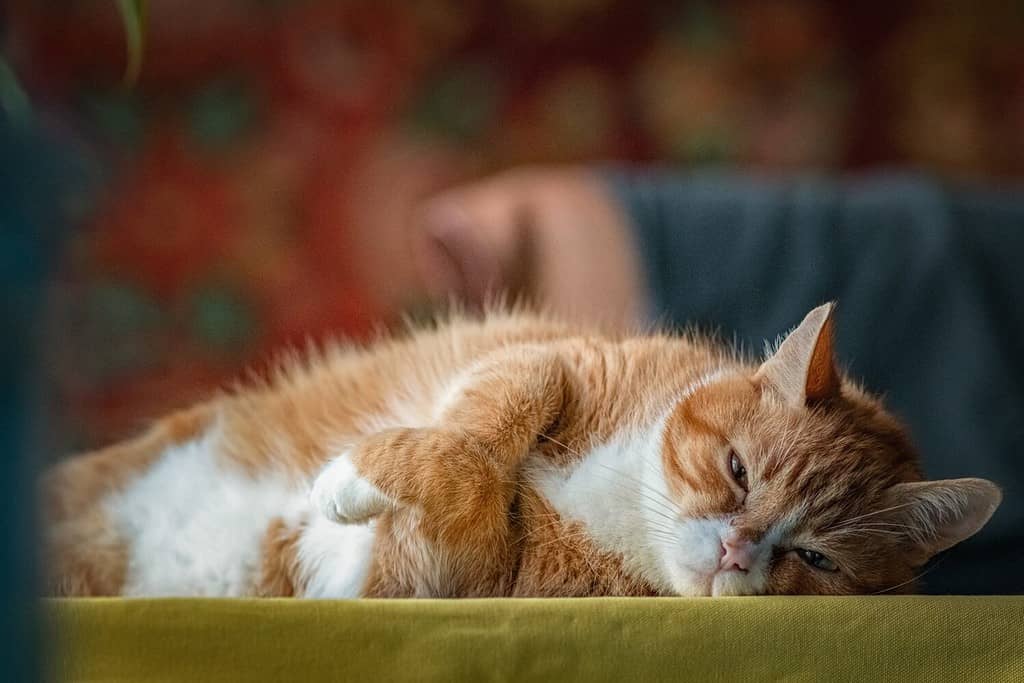
Cats don’t need as much space as dogs since they love to climb.
©shymar27/Shutterstock.com
Cats utilize vertical space well and can live happily in even tiny apartments. You just need space for a litterbox, food and water dishes, and a scratching post. Cat trees are ideal, but shelves on the wall or a cat bed on top of your dresser can work as replacements.
Dogs are a bit harder to fit into small spaces since even small breeds need space to run and play indoors. They don’t climb like cats, so floor space is more vital.
Cats are also never going to exceed the weight limit for pets in your apartment, won’t annoy the neighbors with barking, and won’t need to go outdoors every time they need to potty.
#19: Cats Don’t Chew Your Favorite Things

Cats don’t chew like dogs, even as kittens.
©Valeriya Dzyuba/Shutterstock.com
If you’ve had a teething puppy and didn’t have at least one of your things destroyed, you’re one of the lucky ones! Some dogs chew destructively even into their adult years, especially those with separation anxiety.
If you have a large dog, they can easily tear apart furniture and might even damage the walls. It can be frustrating and expensive to deal with.
Cats do scratch furniture and other items, but trimming their nails regularly, training them to scratch appropriately, and using claw caps if needed will reduce this behavior. Even when they are destructive, cats tend to do less damage since they’re so small.
#20: They’re More Independent than Most Dog Breeds
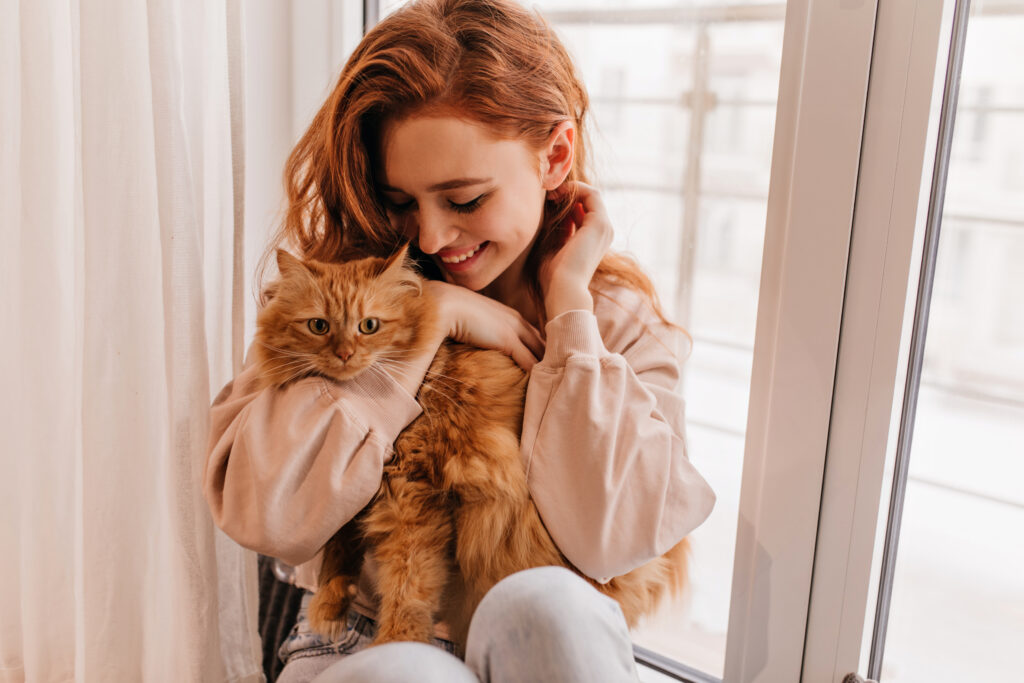
Cats don’t tend to need as much attention as dogs, although it depends on their personalities.
©Look Studio/Shutterstock.com
Cats are generally more independent than dogs. Of course, this depends on personality, dog breed, and other factors. Some cats are incredibly clingy and affectionate, while some dogs are very aloof.
Sighthound breeds, in particular, are often compared to cats due to their independence. And when people say their cats are dog-like, they often mean they’re friendly, outgoing, and affectionate–traits that are actually very common in cats!
#21: Cats Understand Boundaries
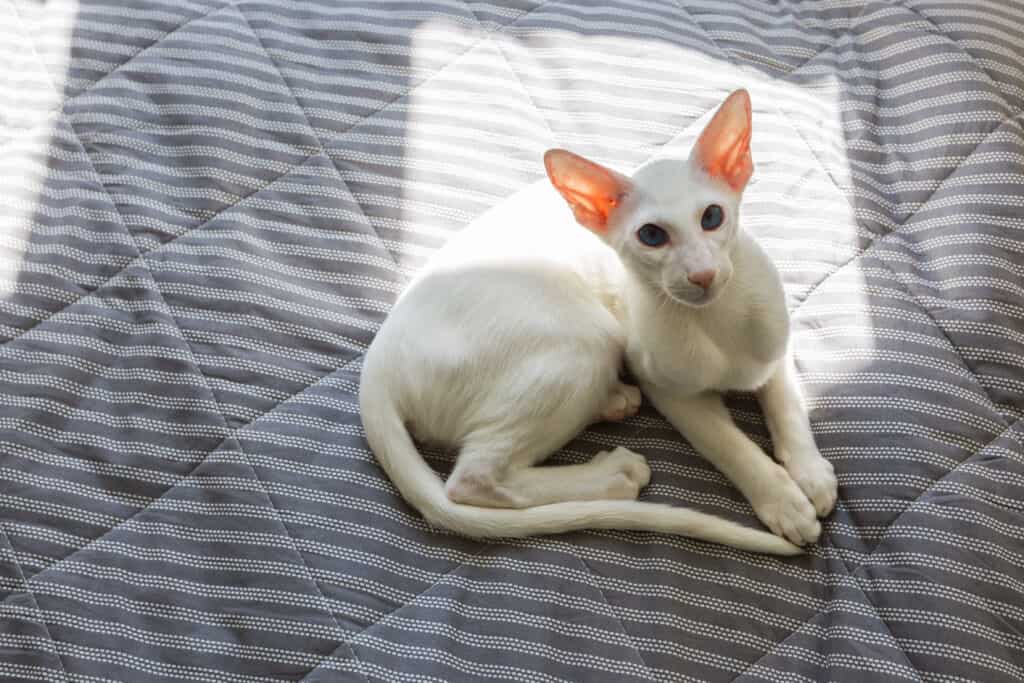
Cats don’t tend to be as bouncy or in-your-face as some dogs.
©iStock.com/VittoriaChe
Again, this one depends on personality. But as a whole, cats are known for setting boundaries and not letting just anyone in. They may give you more personal space than a clingy pup.
Then again, they might not! If you’re looking for a cat with a specific personality, I always recommend adopting an adult cat from a shelter or rescue that utilizes foster carers.
In a home setting, the cats’ personalities really shine through, and the organization can pair you with the best match.
#22: They’re More Flexible
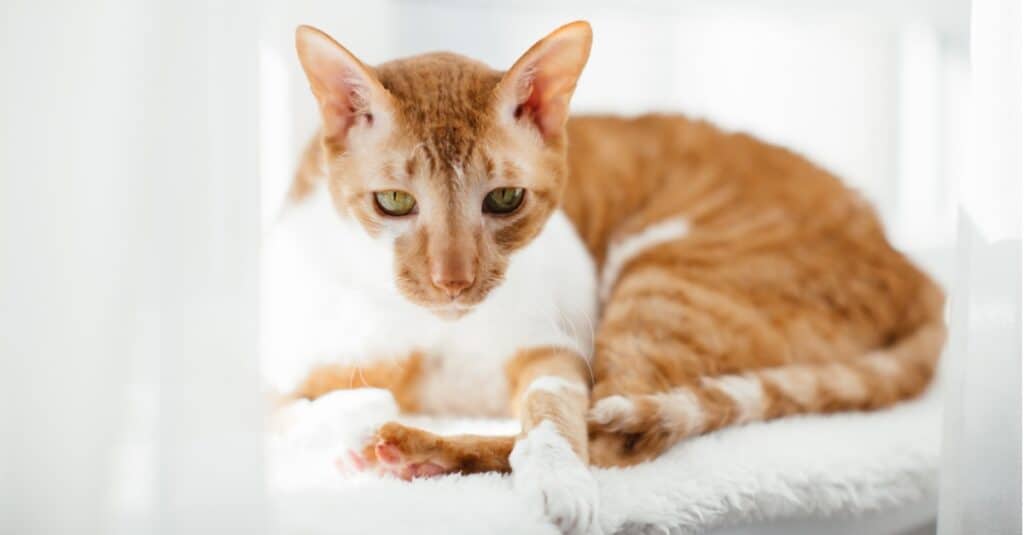
Dogs aren’t as flexible as cats.
©iStock.com/Ekaterina Bondaretc
Cats have flexible spines and can bend in ways that dogs cannot. Now, this doesn’t really impact us humans–but it is funny to see the hilarious ways they sleep!
A cat soaring through the air, twisting their body to go after a toy, is also a sight to behold. Their flexibility makes it easy for them to clean hard-to-reach places as well, which is one of the reasons they don’t need to be bathed like dogs.
#23: They Can Withstand Long Falls

Cats typically land on their feet and fare better after a fall than dogs.
©Miroslav Halama/Shutterstock.com
Of course, we should never put our pets at risk–your cat won’t be falling from trees or the top floors of a building if you’re a responsible cat guardian.
But, it’s remarkable that they can land on their feet, sometimes without injury, from falls that most dogs wouldn’t survive. This is due to their righting reflex, which causes them to turn while falling in order to land upright.
However, cats can still get hurt from a fall–even a minor one. There are many factors that determine their injuries upon landing, including where they fall from, how they land, and their overall health.
#24: Cats Can be Just as Playful as Dogs
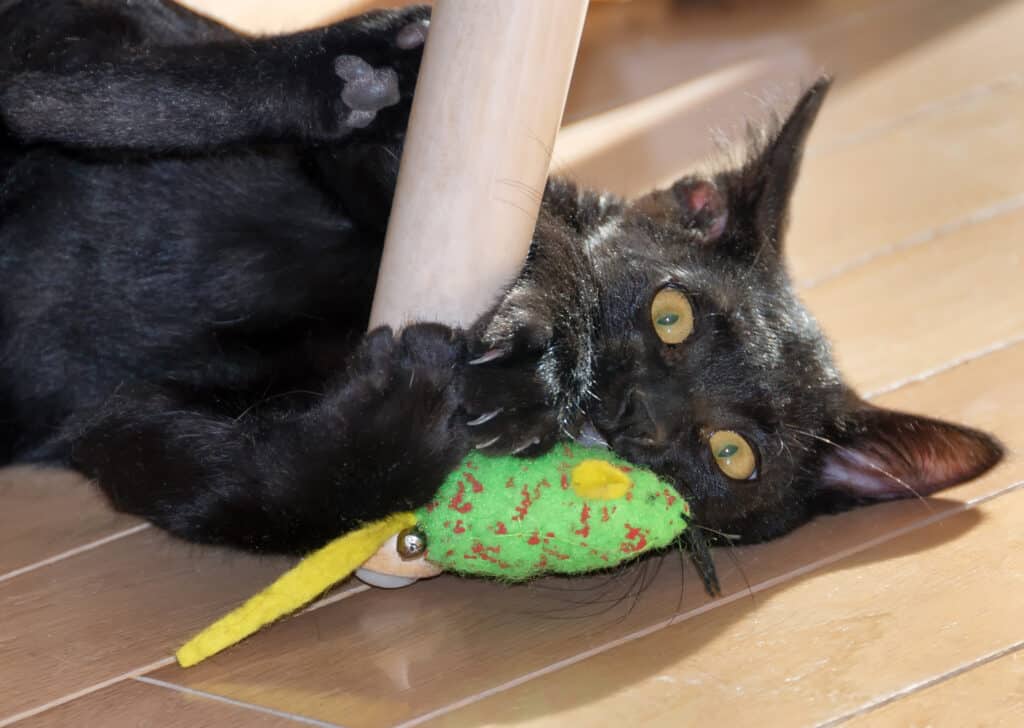
You won’t miss out on playtime with a cat because they’re also very energetic.
©Lux Blue/Shutterstock.com
If you think you prefer dogs because they’re playful and goofy, you must not have seen a cat in action! Cats who get regular exercise are just as playful as dogs, though they do have less stamina than most breeds.
Cats hunt by watching their prey for long periods, then attacking in one smooth motion. This helps them to conserve their energy.
This means that your cat will prefer a few 10-15 minute play sessions a day rather than long play sessions like you would get from a dog.
Common Myths About Cats
Now that we’ve discussed some benefits to cats as a pet, let’s talk about some myths that people believe about felines.
It’s important to have all of the facts before adopting a new pet, and with cats, there are many common misconceptions.
- Cats are not as low maintenance as many people believe. They need daily play, attention, and enrichment, just like dogs!
- Cats can and should, be trained. A lot of cat misbehavior comes from the misconception that cats cannot be trained. Early socialization and training make life with a cat easier and more enjoyable for both of you!
- They cannot be left alone for days at a time–even with food and water available. Cats may survive this kind of neglect, but so would your dog! This doesn’t make it less upsetting and sometimes traumatizing for them to experience.
- Cats are social animals that naturally live in colonies. They aren’t solitary, and most cats thrive when allowed to live with other cats. Kittens, in particular, should always be adopted in pairs.
- Just because they don’t complain doesn’t mean they’re unaffected. Many cat myths stem from the fact that they’re quieter when in distress. Left alone for long periods, your cat might not bark or chew the sofa, but this doesn’t mean they aren’t stressed
Overall, whether a cat or dog is best for you is a personal choice. Both are excellent pets, which is why they’re so commonly found in households around the world.
Hopefully, this article has helped to clear up misconceptions about cats and to show how great they can be. But if you’re a dog person, there’s no shame in adopting a sweet pup instead!
Thank you for reading! If you have feedback on this post, please contact the AZ Animals editorial team.
Summary of 24 Reasons Cats Are Better Than Dogs!
| Reason | |
|---|---|
| 1 | They Don’t Need Baths |
| 2 | They Don’t Smell Like Dog |
| 3 | You Don’t Need to Walk Them (But You Can!) |
| 4 | They Do Best When Kept Indoors |
| 5 | They’re Better at Finding Their Way Home |
| 6 | They Use Litter Boxes |
| 7 | Their Poops are Smaller |
| 8 | Potty Training is (Usually) a Breeze |
| 9 | They Require Less Training in General |
| 10 | Cats Don’t Bark |
| 11 | Their Purrs Can Literally Heal Injuries |
| 12 | They Tend to Be Cheaper Than Dogs |
| 13 | Cats Often Adopt You |
| 14 | Breed is Rarely Important |
| 15 | Kittens are Easier to Care for than Puppies |
| 16 | Indoor Cats are More Eco-Friendly than Most Dogs |
| 17 | Cats Often Live Longer than Dogs |
| 18 | They Do Well in Apartments |
| 19 | Cats Don’t Chew Your Favorite Things |
| 20 | They’re More Independent than Most Dog Breeds |
| 21 | Cats Understand Boundaries |
| 22 | They’re More Flexible |
| 23 | They Can Withstand Long Falls |
| 24 | Cats Can Be Just as Playful as Dogs |
The photo featured at the top of this post is © Kelley Varisco/Shutterstock.com
Thank you for reading! Have some feedback for us? Contact the AZ Animals editorial team.







